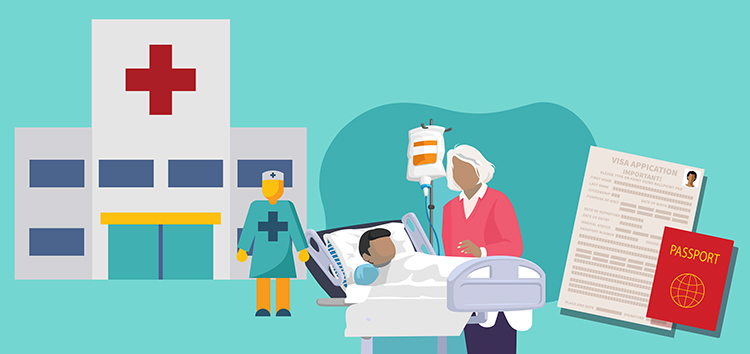
When 13-year-old Luis was diagnosed with acute myeloid leukemia last year, he received some initial treatment in Mexico, but it was insufficient to eradicate the disease, which quickly returned. His parents sent their son, a U.S. citizen, to be cared for at Seattle Children’s Hospital.
The team at Seattle Children’s determined that a bone marrow transplant was the only way to save Luis’ life. But it’s an intense and complicated procedure. Before patients can undergo it, they are required to have a designated parent or family member present and available to provide emotional and practical support 24 hours a day, 7 days a week, for many months. The only family member who was available to offer that kind of attention was Luis’ grandmother in Mexico. She applied for a travel visa on her own, and received one, but it only allowed her to stay for a single month.
That’s when social workers at Seattle Children’s turned to DWT. Through a Medical-Legal Partnership that DWT helped establish with the hospital in 2007, DWT immigration attorney Rich Rawson stepped in to assist Luis’ grandmother. “There’d been some confusion at the port of entry or something,” says Rawson. “Most times when someone comes to visit a sick relative, they get six months.”
Together with paralegal Cathy Braun, Rawson was able to get the grandmother’s visa extended until November 1. They are currently working to win an additional extension, as Children’s continues to provide treatment to Luis (not his real name).
Rawson says the Medical-Legal Partnership was established from “a recognition that the outcome of medical treatment and health of a child is often very tied to a legal issue that the family doesn’t have the financial or even emotional resources to deal with themselves.” In some cases, the work is “a relatively simple thing for us to do,” he says, “but not for them. And it’s a really important thing.”
Attorneys with the nonprofit Northwest Justice Project handle much of the legal work that comes through the Partnership. When there are immigration issues, or other kinds of specialized concerns, other attorneys are sometimes called on. Rawson chairs the Partnership’s lawyer referral committee, which recruits lawyers to provide services in areas where they have particular expertise, or where there are a high volume of cases.
Rawson and Braun have worked together to assist a number of families since the Partnership was established, and have visited Seattle Children’s several times to visit their clients. Earlier this year, Rawson says, an 11-year-old boy was able to return to Mexico with his mother after a successful kidney transplant. The DWT team helped the mother secure extensions to her visa in order to care for her son.
“Some of the cases are tough,” says Rawson. “We’re not always successful. But it’s nice to be able to provide a service to people who really need the help.”
In October, DWT was recognized for its participation in the Partnership by Seattle Business magazine at the publication’s inaugural Community Impact awards. The firm took home Silver honors in the Pro Bono Services category.
